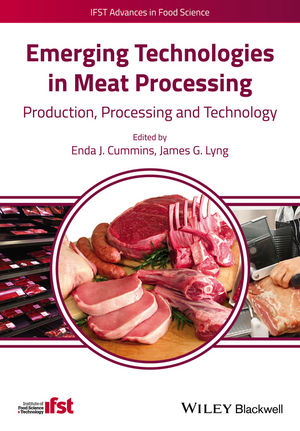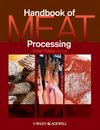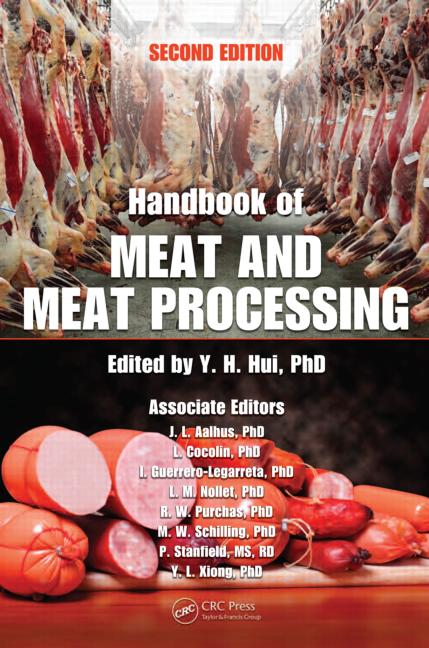2006 Deli Processing Awards
by Sam Gazdziak, Senior Editor
Innovative new products and services have brought five companies to the forefront of the deli meat industry.
The deli section of a supermarket is a popular destination for consumers and processors alike. Shoppers go there to pick up lunch supplies for the week or for a convenient hot meal to serve their families. To help meet those needs, deli processors are busy introducing new products to attract the consumers’ eyes. Others are offering services that will help retailers boost sales at the deli counter. The popularity of deli products extends beyond the supermarket, as more and more restaurant chains are adding or expanding the deli sandwich selections on their menu.
Because the deli market is an area of the meat-processing industry that is ready for innovation, The National Provisioner is recognizing five companies with The 2006 Deli Processing Awards. These processors have found success with new products, new services and new partnerships, and they are helping to grow the category even further.
The Deli Processing Awards are being presented to the following companies:
Cargill Meat Solutions: When Wendy’s was looking to add a line of deli sandwiches to its menu, the chain turned to Cargill. The company helped lead the way to providing Wendy’s with the sliced meats for its popular line of Frescata sandwiches.
Hormel Foods: With its Hormel Natural Choice line of sliced deli meats, Hormel became the first company to offer a nationally distributed brand of natural deli sandwich meats.
Sara Lee Foods: Sara Lee’s Deli C.U.T.S. program has given retailers insight into consumer behavior and motivation toward the deli category, allowing them to grow deli sales in their stores.
Tyson Foods, Deli Division: The Consumer Insights program Tyson has put together allows retailers to learn about the shopping habits and motivations of their customers, allowing them to optimize their supermarkets to maximize the consumer shopping experience.
Willow Brook Foods: Willow Brook’s Lifestyle Premium Deli line not only capitalizes on the popularity of all-natural products, but the tub in which the product is packaged is the first in the industry to feature a pre-printed, tamper-evident lid.
The National Provisioner would like to congratulate all five award-winning companies for their contributions to the deli segment.
Cargill Meat Solutions
Wichita, Kansas
Wendy’s Frescata Sandwich line
Tendy’s restaurants are known for their square hamburgers and the Frosty, but the restaurant chain also has shown a willingness to adapt the menu as times have changed. For example, the company previously added chicken sandwiches and salads to its menu to give its consumers a greater variety. Yet, its newest menu addition was the Frescata line of deli sandwiches, which were unveiled this past April.
Wendy’s Frescata Sandwich line
Tendy’s restaurants are known for their square hamburgers and the Frosty, but the restaurant chain also has shown a willingness to adapt the menu as times have changed. For example, the company previously added chicken sandwiches and salads to its menu to give its consumers a greater variety. Yet, its newest menu addition was the Frescata line of deli sandwiches, which were unveiled this past April.
Several deli meat processors are involved in the production of the Frescata deli sandwiches, but Cargill Meat Solutions explains that it was the lead company and helped Wendy’s bring its idea of gourmet deli sandwiches to fruition.
“This opens up a whole new menu category for us, and gives our customers more choices and more reasons to visit Wendy’s,” says Ian Rowden, executive vice president and chief marketing officer, Wendy’s International. “The quality of the sandwiches is exceptional, and we believe they deliver a taste experience that our customers will enjoy.”
The Frescata line, not to mention Wendy’s other menu innovations, come as a result of a thorough menu-development process, which combines consumer and market research with current trends. “Our customers tell us they are looking for more fresh choices, new tastes and the ability to get their food prepared exactly the way they want it. This is what Frescata delivers,” Rowden says. “The deli sandwich category, which continues to expand, represents a growth opportunity and another way for us to meet our customers’ needs.”
On the Wendy’s menu, there are five Frescata sandwiches, each featuring fresh-baked artisan bread along with the deli meats and other toppings. The Frescata Club features deli cuts of turkey and Black Forest ham topped with two bacon strips, lettuce, tomato and mayo. The Roasted Turkey & Swiss has turkey, Swiss cheese, mayo, lettuce and tomato. The Black Forest Ham & Swiss has thin slices of Black Forest ham, aged Swiss cheese, honey-mustard sauce, crisp lettuce and ripe tomato. The Roasted Turkey & Basil Pesto offers sliced turkey topped with roasted red peppers, crisp romaine and a basil pesto spread. Wendy’s newest offering, the Frescata Italiana, has Genoa salami, Black Forest ham, roasted red peppers, crisp Romaine and tangy, sun-dried tomato vinaigrette.
The Frescata line has been a big success for Wendy’s. The line was introduced in early April, and by the end of May, the company had sold its 20-millionth sandwich. “We’re excited about the enthusiastic customer reaction to our Frescata deli sandwiches. It is one of the strongest initial responses we’ve had for a new menu offering in recent years,” says Kerrii Anderson, interim chief executive officer and president of Wendy’s International. The Frescata sandwiches were one of the contributing factors to Wendy’s posting positive same-store sales this year for the first time since January 2005. NP
Hormel Foods
Austin, Minnesota
Natural Choice deli products
Food items with “natural” and “organic” are appearing all over supermarkets, as American consumers start to pay more attention to reading ingredient lists and becoming more health-conscious. It was only a matter of time before that trend carried over to the deli meat category as well. Hormel became the first nationally distributed brand of natural deli sandwich meats when it introduced its Hormel® Natural Choice® line this March.
Natural Choice deli products
Food items with “natural” and “organic” are appearing all over supermarkets, as American consumers start to pay more attention to reading ingredient lists and becoming more health-conscious. It was only a matter of time before that trend carried over to the deli meat category as well. Hormel became the first nationally distributed brand of natural deli sandwich meats when it introduced its Hormel® Natural Choice® line this March.
“There was a growing focus on health and wellness from consumers, and the industry didn’t have a natural national product offering of this kind,” says Ryan Vossler, product manager. The Natural Choice products are 100-percent natural with no preservatives and no artificial colors or flavors. The ingredients and meat are also minimally processed.
The end result, he says, is a product that provides a truer meat flavor than other deli meats.
There are six retail items in the Natural Choice line: Cooked Deli Ham; Honey Deli Ham; Honey Deli Turkey; Oven-Roasted Deli Turkey; Smoked Deli Ham, and Smoked Deli Turkey. There are also six Natural Choice products available at deli counters: Black Forest Deli Ham; Virginia Deli Ham; Honey Deli Ham; Brown Sugar Deli Ham; Rare Seasoned Deli Roast Beef, and Seasoned Deli Roast Beef.
To produce the natural meats, Hormel developed a new production process specific to the product. “Hormel Natural Choice is made through high-pressure pasteurization, which is a process that uses high-pressure, water-based technology to kill bacteria without losing any of the taste of the meat or adding any artificial flavors, colors or preservatives,” Vossler says.
After the Natural Choice meats have been sliced and packaged, the product is placed in a TrueTaste technology chamber, where 87,000 pounds of water pressure per square inch kill harmful bacteria with no changes to the meat. The process is approved by the U.S. Department of Agriculture and done at the company’s Osceola, Iowa, facility. It has been used in other food products, such as guacamole and fruit juice, but this is the first application in the deli meat industry. Hormel also uses vacuum-sealed packaging to lock in the natural flavor and freshness.
Vossler says that since the line’s release, sales have been very favorable. “Hormel Natural Choice deli meat has achieved good distribution levels, helping the company’s refrigerated foods product category contribute 53 percent of the company’s third-quarter net sales [$1.41 billion] and 26 percent of its total operating profit,” he says.
Tyson Foods, Deli Division
Springdale, Arkansas
Consumer Insights program
Does a grocery store have more pragmatists or fun-loving foodies for clientele? Perhaps their shoppers treat food as a labor of love, or an all-about-me experience. After years of research, Tyson Deli has developed a program to help retailers identify their shoppers and better optimize their shopping experience.
Consumer Insights program
Does a grocery store have more pragmatists or fun-loving foodies for clientele? Perhaps their shoppers treat food as a labor of love, or an all-about-me experience. After years of research, Tyson Deli has developed a program to help retailers identify their shoppers and better optimize their shopping experience.
The Consumer Insights program began a few years ago, as Tyson was looking at how to identify trends that would impact consumers’ behavior, particularly around food. “We hired Faith Popcorn to work with us and identify what were the major trends affecting consumers, and then to help us develop a consumer segmentation model that really helped us identify attitudes and behaviors around food,” says Eric LeBlanc, director of marketing, deli division.
After extensive research and interviews, seven consumer segments were identified: pragmatists, labor of love, fun-loving foodies, dissatisfied diners, culinary chaotics, all about me, and out & about eaters. The research went so far as to identify what motivates each segment, as far as meals go. A labor of love person would treat a meal as a way of expressing his or her love to the family, and so meal times are extremely important. Pragmatists eat to survive and not enjoy, so they try to get past meal times to do the things they consider the most important. Fun-loving foodies treat each meal as a social occasion, with food being secondary to the social interaction.
The research showed that the segments transcend all economic, social and regional backgrounds. The one place where there was variation was at the retail level. One store may have a high mix of pragmatists, while another may have a concentration of culinary chaotics. “When you understand that motivation, all of a sudden you learn to speak to that person,” LeBlanc says. “If you are a retailer, and you understand your mix of shoppers, you can begin to optimize their shopping experience by the things that motivate them the most and create a shopping experience that speaks to them most powerfully.” The deli is one area where people will have dramatically different experiences, depending on who they are. LeBlanc points out that one of the most common aspects of any deli case is that consumers have to take a number and wait in a line. “A fun-loving foodie, if there are samples and people to talk to, is fine with a line,” he says, adding that the queue may be a good place to offer cookbooks for sale. “You want to make sure the environment around the queuing is very stimulating, and you want to give people ideas for how to use products and what they can serve with it. The No. 1 phrase we hear from foodies when they visit the store is, ‘Inspire me.’”
Pragmatists, on the other hand, see shopping as completing a race, and they generally do not want to wait in line or be otherwise delayed. For a store that is filled with pragmatists, LeBlanc suggests maximizing the grab-and-go and self-serve opportunities as much as possible, and make sure the store is properly staffed to get people in and out as quickly as possible. He even suggests the idea of creating a curbside service, or a call-ahead option where a consumer can order a to-go meal from the deli case and have it waiting when they arrive at the store.
LeBlanc says that cross-merchandising total meal solutions is one way to satisfy a pragmatist. If a supermarket has a hot-service case or grab-and-go case that offers things like rotisserie chickens, it could put the other components for a meal within easy reach. “They don’t have to have the idea for the meal — you’ve given them that — and they don’t have to go hunting for things — they’re right there,” he notes.
The process to put the Consumer Insights program together has taken Tyson several years, and they are now to the point that they are looking to partner with retailers to provide this information. The program is underway, with several retailers trying it out in test stores. LeBlanc says that so far, participants have been surprised by the level of detail in the research, and that the research can be translated into tactics that can yield predictable results within the store.
“[With delis,] retailers are struggling with spoilage and waste, and labor is always a problem,” he says. “They’re looking for how they can make their deli more economically viable. I think we’re bringing them a solution to that that has a lot of promise.” LeBlanc adds that the initial feedback so far has been very enthusiastic.
Tyson Deli offers products across the entire range of deli offerings, from the service case and grab-and-go cases to the deli meat case, with its Russer brand. The company has been focusing on revitalizing the hot- and cold-service and grab-and-go cases with several recent offerings. In addition to rotisserie chicken, Tyson also has been offering rotisserie pork loins and pot roasts. “It’s 4:30, and a consumer needs to go from zero to amen in one hour,” LeBlanc says. “How do we help that occasion and bring it beyond rotisserie chicken?”
Tyson has also introduced three new party trays, featuring meatballs, popcorn chicken and buffalo wings, for the grab-and-go cases. LeBlanc notes the popularity of adult social occasions, such as poker nights and sporting events.
LeBlanc points out that of all the pounds of food sold in the deli today, 68 percent are product categories where Tyson is represented. “There isn’t another manufacturer anywhere close to [that] kind of penetration in the deli, which gives us a chance to have an oversight of the whole department that no other manufacturer can even begin to have,” LeBlanc says.
Willow Brook Foods
Springfield, Missouri
Lifestyle Premium Deli brand
One of the more popular trends in the deli meat category in recent years has been the use of resealable, reusable tubs to hold pre-sliced deli meats. One of the fastest-growing categories in the food industry is the all-natural market. Willow Brook Foods combined those two hot ideas into one product with the introduction of its Lifestyle Premium Deli All Natural brand of products.
Lifestyle Premium Deli brand
One of the more popular trends in the deli meat category in recent years has been the use of resealable, reusable tubs to hold pre-sliced deli meats. One of the fastest-growing categories in the food industry is the all-natural market. Willow Brook Foods combined those two hot ideas into one product with the introduction of its Lifestyle Premium Deli All Natural brand of products.
“Willow Brook Foods created the Lifestyle Premium Deli brand to capitalize on the ‘all-natural’ and ‘healthy’ food trends that are gaining popularity among today’s customers. Lifestyle Premium Deli allows consumers to enjoy deli meats that not only taste good but are also good for them,” says Tom Collins, director of marketing. Lifestyle products are allergen- and gluten-free, lower in sodium and meet the U.S. Department of Agriculture (USDA) definition for a healthy product. They are made of all-natural ingredients and are minimally processed.
The original line is distributed nationally, particularly in Wegmans and Shoprite. That product line includes Hickory Smoked Breast of Turkey, Golden Browned Breast of Turkey, Honey Roasted Breast of Turkey, Golden Browned Breast of Chicken, Hickory Smoked Ham, Honey Mesquite Ham, Black Forest Ham and USDA Choice Seasoned Roast Beef.
The company’s All Natural line was introduced earlier this year and has been positively received by customers, Collins says. It is available in two formats. The netter single turkey breast lobe comes in the following varieties: Golden Turkey Breast; Smoked Turkey Breast; Herb Seasoned Turkey Breast, and Oven Roasted Turkey Breast.
The All-Natural line of sliced deli meats features Golden Turkey Breast, Roast Beef, Golden Chicken Breast and Smoked Turkey Breast.
The tub packaging of the sliced meats is also noteworthy, Collins points out. “Willow Brook’s Lifestyle All Natural tub is the first in the meat industry to feature a pre-printed, tamper-evident lid. This unique packaging design, along with the ability to merchandise the tub in a variety of ways, will make this tub a distinctive package in the meat or deli case. In addition, the tub can be reused and is microwaveable.”
The All Natural products include a microbial inhibitor that qualifies as “all natural.” Collins says that “we found [it] to be important for product safety while not compromising our offering of an all-natural product.” The processing is done in Springfield, at Willow Brook’s further-processing plant and Precision Slicing.
The company relays that a number of people were responsible for the success of the Lifestyle line. Those Willow Brook management and employees include Mike Briggs, president; Rich Mende, executive vice president, sales and marketing; Godron Day, vice president deli sales; Collins; Lindy Biglieni, associate product manager; Terri Emmons, merchandising manager, and Bill Vander Baan and Andrew Cobb, food technologists.




Report Abusive Comment